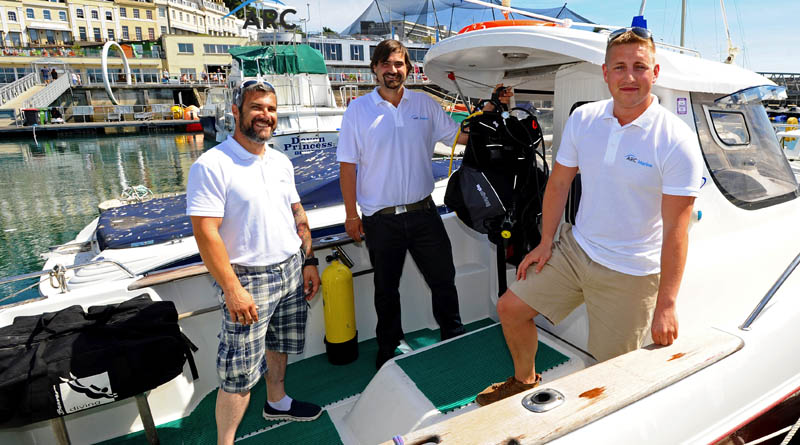Q&A: ARC MARINE – REEFS & THE WHITE CLAWED CRAYFISH
ARC Marine is a UK-based company building the world’s first modular artificial reef in the UK. This reef will help create habitat and protect the globally endangered white-clawed freshwater crayfish.
We chat co-founder Tom Birbeck about ARC Marine and the crayfish…
What inspired you to create your modular artificial reef system?
James and I met through a mutual desire to build a substantial reef in Torquay, a place we both live and dived for many years. We formed ARC Marine with the goal of creating a national and international project in rocky reef regeneration.
In the early days of the company we explored the uses of decommissioned ships and other traditional methods and found our options very limited. The ARC Module was inspired when we couldn’t find a multifunctional reef structure that could be stacked or connected to form modular reef systems on the seabed.
Why build man-made reefs in the UK?
Critical levels of commercial fish stocks and destructive fishing methods are destroying and endangering many species here in the UK. Marine conservation zones have been set up to rehabilitate and protect areas of the seabed from further destruction and artificial reefs have an important role to play.
Government bodies and fishery departments can deploy artificial reefs in locations where they wish to deter commercial fisherman from bottom dredging in areas which have been closed to destructive activates.
The ARC module is in effect a “sleeping policeman”. This permanent seabed structure means local authorities save time and costs in patrolling areas closed off to bottom trawling such as MPA’s and MCZ zones.
The pink sea fan and short snouted sea horse here in Devon are perfect candidates to be rehabilitated through the introduction of a large artificial reef system that also stops illegal fishing in marine protected areas. . Without our help the oceans could be damaged beyond repair, only then we will truly understand how dependent we are on the marine world.
What are your modules made of and why did you choose this material?
Our modules are made of a marine friendly concrete mix that has been proven to generate rapid marine growth, have an estimated lifespan of 500+ years and has been used world wide.
Concrete structures have a huge advantage over steel, which can only last between 80-100 years and after 5-10 years normally break down so much that they are too dangerous for divers to enter. Wrecks are notorious for claiming divers lives as they seek to enter the degrading hull of the ship, a situation we have seen multiple times on our local wreck “HMS Scylla”.
In order to protect the freshwater white-clawed crayfish, where are you building your reef?
Our first reef will be built at Vobster Quay, an inland water site and former quarry that is popular with divers. We chose this location due to it being one of the registered Ark sites that host a regeneration program organized by Bristol ZOO for the UK’s indigenous white-clawed freshwater crayfish population. The freshwater crayfish is dying out due to habitat destruction and the invasive, aggressive US signal crayfish. This species is classed as globally endangered and at risk of becoming extinct in the UK within 20-30 years.
Our reef will be a welcomed feature for the crayfish in Vobster and will be deploying crayfish juveniles on the completed reef to boost the numbers in this protected site.
What next for ARC Marine?
We are collaborating with Plymouth University on our Torbay reef project as well as looking into sites located in Cambodia and the Caribbean to stop illegal fishing in marine protected areas. ARC Marine is creating the UK’s first nation wide reef project for both the planet and divers to benefit from. We also have products in the early design stages such as sea grass habitats and the redesign of commercial fishing practices to prevent damage to the marine environment.
Where can we find out more in UK?
http://www.crowdfunder.co.uk/arc-marine

